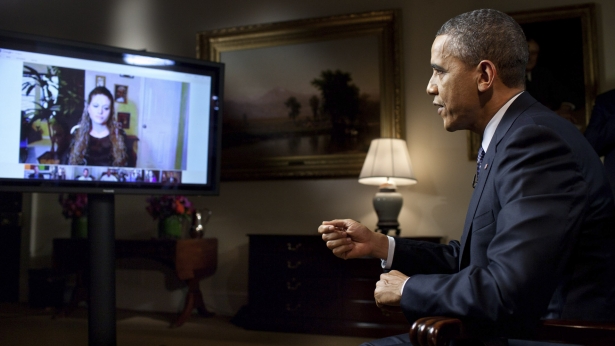

The White House said it would look into patent trolls [1, 2, 3, 4], tackling one strand of the issues incurred by software patents. The investigation is commencing now:
Patent trolls have hit Main Street this year and anger about their demands has bubbled up to Washington.
Today, the Federal Trade Commission (FTC) is expected to announce that it will open an investigation into "patent trolls," a derogatory term for companies that engage in no business activities aside from suing over patents. The investigation will be announced at a conference by FTC chairwoman Edith Ramirez, according to a report this morning in The New York Times. The investigation into trolls, which the FTC calls "patent assertion entities" or PAEs, will complement other anti-troll government actions this year, like President Obama's report on patent issues and the five anti-patent-troll bills introduced so far in Congress this year.
THE UNITED STATES Federal Trade Commission (FTC) will look into ridiculous but disruptive software patents and the shadowy entities that hold them.
The FTC was asked to look at patent trolls by several members of Congress. A letter signed by 19 Congress members and addressed to FTC chair Edith Ramirez said that patent trolls are useless, get in the way, slow down innovation and extract money from more deserving firms.
"As Members of Congress, we are closely following the troubling practices carried out by patent assertion entities, commonly known as patent trolls throughout the country. We are most concerned about practices that target end users who are the downstream users of technology," the letter read.
“So it’s what we call exponential, we are at about 40,000 software patents being granted each year which is a lot considering that just about 10 years ago, it was about 10,000 patents and even in 1990, it was just 5,000 software patents a year...”
--Deborah NicholsonSoftware and design patents. That's right. See the pattern yet? Therein lie many of the real issues. It's about scope, too.
Meanwhile, since we're on the subject of scope, the numbers we saw before were echoed in this new OIN interview. Deborah Nicholson says: "So it’s what we call exponential, we are at about 40,000 software patents being granted each year which is a lot considering that just about 10 years ago, it was about 10,000 patents and even in 1990, it was just 5,000 software patents a year, so it’s a very scary kind off-the-chart number."
The OIN is not doing what's right; it continuously says it wants to improve patent "quality" or stop "bad" software patents. Some of the OIN's biggest backers, notably IBM, are proponents of software patents.
The latest atrocious ruling by CAFC did nothing to remove software patents; quite the contrary. And the EFF called for this ruling to be escalated to SCOTUS. The EFF has been very strange when it comes to this subject; it's as though it's fractured and divided within. Some members of the EFF advocate the OIN approach, whereas some want to get rid of software patents as a whole. Julie Samuels, whom we wrote about before [1, 2, 3, 4, 5, 6], has been on the side of fighting "bad" patents, not software patents, and she also targets patent trolls rather than patent scope. Gérald Sédrati-Dinet (April) wrote this message to her the other day:
...why the hell do you and EFF want to improve patent quality? we - software users and devs - just don't need patents!
So the FTC says it plans on cracking down on patent trolls, and IV responds by attempting to shake down several companies using patents that are blatantly bogus and should never have been granted in the first place, all originally held by other companies...
Either they aren't following the news, or they are damn sure that the FTC would never actually come after them, because I just cannot imagine how else they could have done something so blatantly designed to draw the attention of the FTC as a perfect first case when going after patent trolling operations.
Intellectual Ventures? You really should make it a little harder to pick on you.